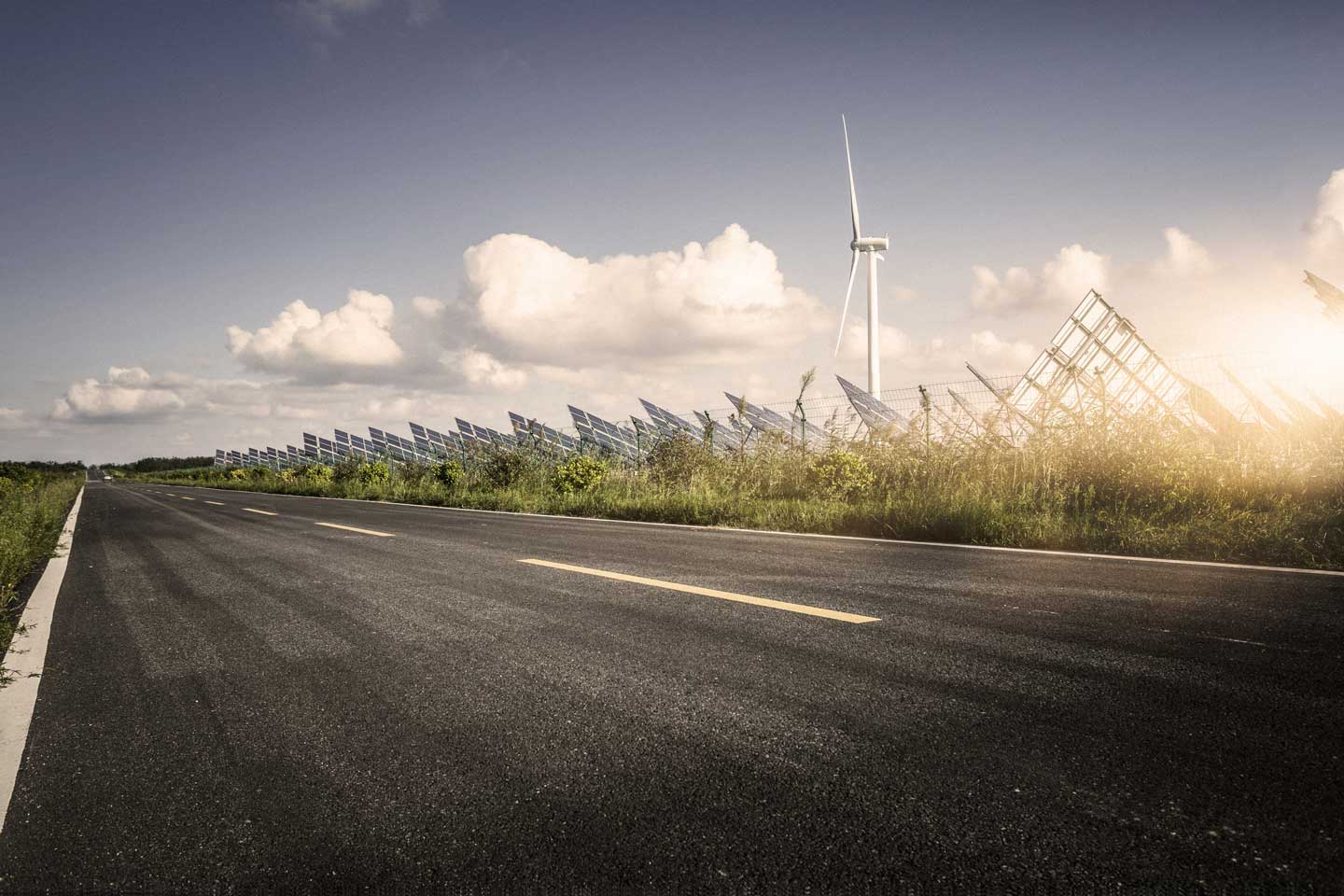

With a footprint in more than 150 countries worldwide, HDI Global SE has offered a broad and needs-based range of insurance solutions and services for decades.
Providing insurance services in the power and energy sector is a highly specialised field, requiring a deep cellular understanding of the risks and future areas of growth for an industry that powers the nation. Founded in 1903 as a liability mutual to provide insurance solutions for the German steel industry, HDI has evolved in leaps and bounds since those early days in turn-of-the-century Europe. The Australian branch of the global group was established over 20 years ago, and under the leadership of managing director ASEAN, Stefan Feldmann, now has offices in Sydney, Melbourne, Brisbane and Perth, adding its staff numbers to over 3,000 employees around the globe.
David Gibbs, an insurance industry leader with over 22-years’ experience, joined HDI in 2018 as underwriting manager to start up the Perth office. Heading up the local WA team, Mr Gibbs will have overseen a four-fold increase in premium income by the end of 2021.
“We have built the business here in WA to bring our global expertise to the local market,” said Mr Gibbs. “I would like HDI to be known as the leading industrial insurer here in WA, with a reputation for combining underwriting expertise with exemplary customer service.”
As recognised industry leaders in core business segments of property, liability, engineering, marine and accident and health, HDI Australia is notable for its significant presence in industries which drive Australia – mining, power and energy.
The role of underwriting in this specialised space requires a significant understanding of the particular issues and risks surrounding supplying power to Australia, from coast to coast. As the power and energy industry evolves and moves towards renewable alternatives, HDI is particularly well-placed to provide insurance services in this cutting edge space.
“The local Perth team is supported by a national team of lead Underwriters who focus solely on power and energy clients, ranging from traditional power suppliers to LNG producers, green energy and renewables,” said Mr Gibbs.
Jane Ravi, who heads up HDI’s Power and Energy division for Australasia and is based in Sydney, recognises that over the past decade there has been an ever-increasing focus on the transition away from traditional thermal power generation portfolios towards greener solutions.
“Given the abundance of natural resources in Australia which fuel many of our traditional generation stations, we understand that the transition to a greener fuel source cannot happen overnight while still maintaining Australia’s energy security,” said Ms Ravi.
“Many of our clients have actively taken numerous steps to manage their contribution to working towards a net zero emissions future which is in line with our views. As underwriters, environmental sustainability goals are at the forefront of our minds and we actively engage with our clients in order to understand how their generation portfolios are changing, and what those planned changes will look like in the future as newer technologies come in.
Ms Ravi also acknowledges that existing infrastructure for traditional power sources is maintained until such time as their services are no longer required.
“We are also focused on making sure that machinery is still managed and maintained in line with engineering requirements until the date of decommissioning,” she said. “We do this by working closely with our clients and our risk engineers in order to manage the risks which are seen here, all of whom are extremely transparent in the sharing of information.
“We understand that as underwriters it is a two-way partnership which needs to be maintained with our clients in order to support them through the transition while being able to maintain energy security.”
Thanks to this forward-focused approach, HDI is seen as a market leader for renewables in Australia.
Andrew Cochrane, Liability Underwriting Manager, Northern Region believes HDI’s vast experience has given the group a better understanding of the exposure.
“Solar farms can be built in close proximity to existing grid lines but wind farms have to be built where the wind blows and may need long connecting lines to the grid which can be bushfire-exposed.”
Some property owners may also not be happy with a large wind turbine or solar farm next to their property, and legislation still has to catch up with this kind of issue.
Haris Michaels, Engineering Underwriting Manager, Southern Region, agrees.
“The renewable energy section is constantly evolving and this dynamic makes it an exciting industry to participate in,” he said. “Natural perils are a constant consideration, and it is somewhat ironic that a leading cause of loss for the industry is severe weather systems caused by global warming, when the purpose of the industry is to reduce the effects of global warming in the first place.”
As new technology presents new challenges in terms of understanding risk profiles, it’s vital that clients in the power and energy space engage an insurance and liability partner who understand fully the implications of working on the cutting edge of supplying power to Australia.
“HDI remains very focused in the power and energy space while other operators may see it as a small arm of a more general insurance offering,” said Mr Gibbs. “We are consistent with our risk appetite and I believe this gives our brokers and clients confidence that we are there to partner with them for the long haul.
“We are still of a size where we can be nimble and adapt quickly when required to find solutions, and we like to really get to know our customers and understand how we can add value to their business.”
David Lloyd, HDI Regional Claims Manager, Australasian and ASEAN says the team has particular experience in some of the uniquely Australian situations where losses have occurred. Leading the claims team, Mr Lloyd has worked in the industry for over 35 years in London and Australian markets. HDI Australia’s claims team is highly experienced in dealing with complex business interruption, liability and marine claims.
“We have been involved with a wide variety of power and energy claims, from a typical turbine explosion, hail-damaged solar farms, generator fires, damaged transformers, to catastrophic installation failures and even a bird striking a live wire with its carcass causing a bushfire,” said Mr Lloyd.
Such events naturally cause a disruption to the business, not just in terms of the damage and the loss itself, but the adjustment the business has to make in order to continue operating. It’s important therefore to manage the claims process as collaboratively as possible is essential.
HDI Global is recognised for its claims excellence, delivery of its claims promises and for being a market leader across all lines of business.
“We pride ourselves on our knowledge and expertise in the power and energy space,” said Mr Gibbs. “HDI’s roots lie in heavy industry and our consistent approach to underwriting, coupled with our highly regarded risk consulting and claims management team make HDI a go-to insurance market in the power and energy space.”
By continuously engaging with brokers and clients, the HDI Australia management team are able to provide them with insurance products that are optimally relevant to their business at any given time.
“We understand that businesses change and we must be ready to adapt our approach to meet the needs of our customers,” said Mr Gibbs. “Our claims teams are involved in client presentations so they can understand their business before appropriately managing their claim. In the event of a claim, it greatly assists the client to have already met the claims manager so a bond of trust is already established.”
This bond is a key part of the organisation’s strong customer focus and the reason why clients not only choose to come to HDI but also to often partner with the company for many years. High profile clients such as Western Power, Synergy, Snowy Hydro and Neoen among others are just examples of this trust in action.
The power and energy industries are highly complex, particularly in terms of their risk profiles – and this complexity means the potential for large losses are high when physical assets are under threat from natural disasters or other unforeseen situations.
Class actions launched against power companies who owned transmission and distribution networks – for instance in the case of the 2009 Black Saturday bushfires in Victoria which resulted in the loss of 173 lives and thousands of homes – are extremely costly on every level. As such, when choosing an insurance partner, it’s vital to select an insurer who understands the nature of this business; in the case of the Black Saturday bushfires, two of HDI’s claims managers acted for clients, gaining invaluable experience for future claims.
“The landscape within these industries is constantly evolving, particularly with a drive towards more sustainable sources of energy,” said Mr Gibbs. “We currently have 18 risk engineers within the region (who form part of a global team of over 170) who are out in the field every day assessing these risks and analysing new technologies.
“It is important to remember that we are more than just a capacity provider. We are a true insurance partner and we share our global knowledge with our brokers and clients. Our engineers from HDI Risk Consulting (HRC) are often called upon to give advice on new technology or construction projects, and they gladly oblige. In addition to this level of expertise, you need to be backed by a strong balance sheet to provide clients with peace of mind that you will be there when the unforeseen happens.”
Reflecting its earliest founding principles, HDI’s DNA retains a strong Germanic ethos of being well-built, reliable and efficient.
“At HDI, we are very passionate about things like emerging technologies and I believe Australia is at a real watershed moment in this area,” said Mr Gibbs.
“We are so rich in natural resources here and in addition, we have some real visionaries leading the charge in areas such a Green Hydrogen and making other production processes that were once deemed “unfriendly” in terms of energy consumption, more efficient.”
HDI is already involved in much of this new technology including the two new battery storage facilities that Neoen are developing with Tesla in South Australia and Victoria
“We are continuing to invest in our business to ensure our local teams are set up to service our customers, new and existing, in this space,” said Mr Gibbs.
“My aim is for clients in the power and energy space to think of HDI when they think of insurance.”







